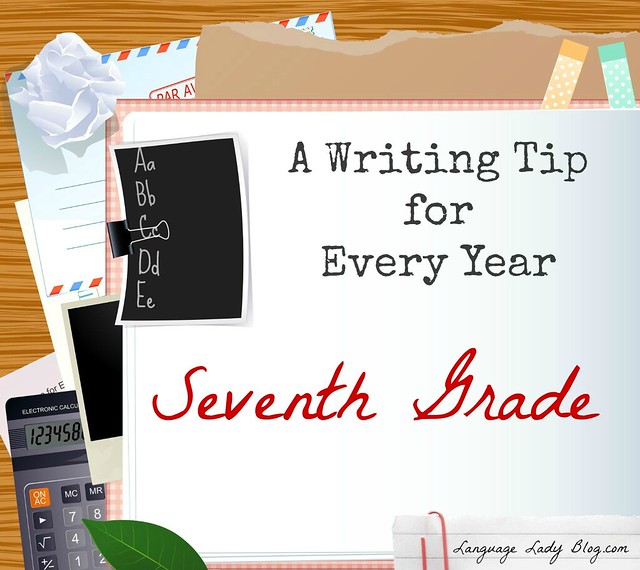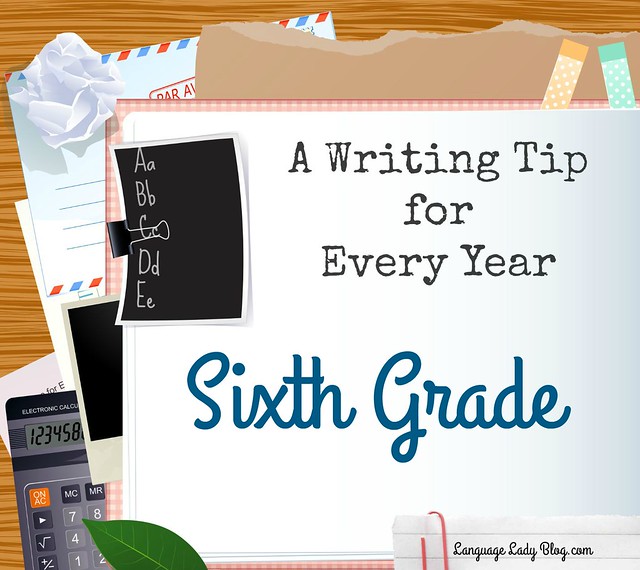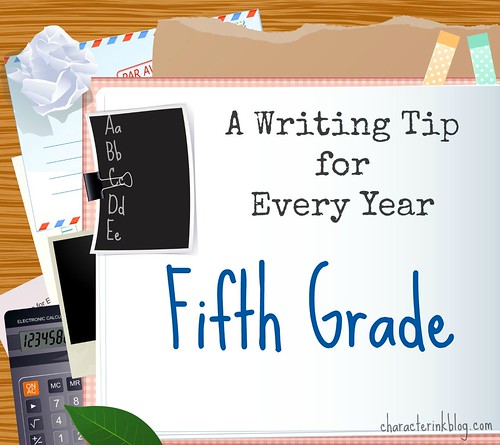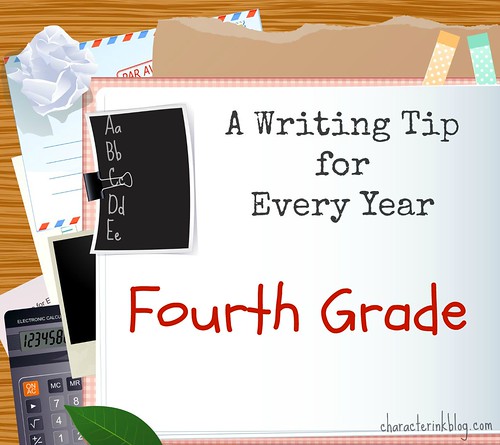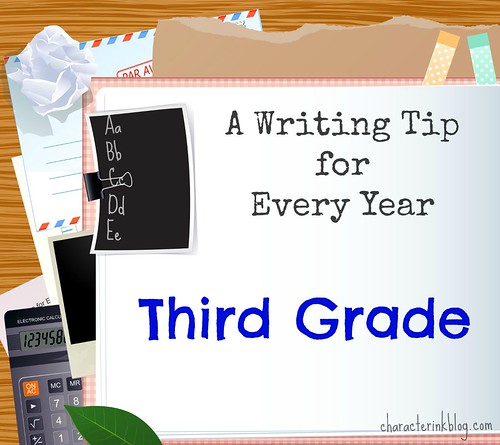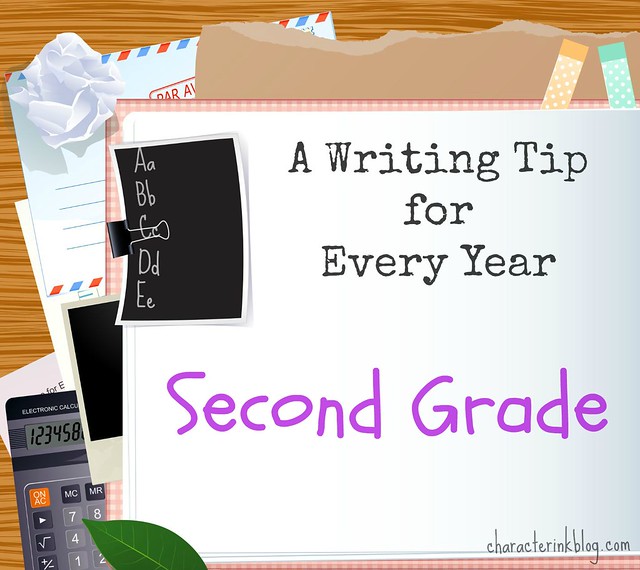by Donna | Nov 19, 2015

Seventh Grade: Teach your student to apply his grammar learning to writing.
While my students often groan when they are told to mark the Checklist Challenge for that week’s homework assignment, they know (and I know) that it really does help. A student just told me this week that her sister had her scan and email her a copy of her Checklist Challenge to use in college—because she had used our CC for every writing project and knew how helpful it can be in revising writing…..
Click here to read more→
by Donna | Nov 10, 2015

Sixth Grade: Use good writing models for your student to write from.
Using good writing models for students is an outstanding teaching tool—as long as you do not use given source writing only. Students need to use a model to write from, then write that same type of writing themselves. This week’s tip focuses on how I do that with my students….
by Donna | Nov 5, 2015

Fifth Grade: Teach students that a paragraph is a unit of thought.
Paragraph division is a difficult concept for students, especially when you don’t teach a paragraph as a unit of thought early on. This week’s tip teaches my strategy for making sure that kids beginning with their very first paragraph understand that a paragraph is a unit of thought.
by Donna | Oct 13, 2015

Third Grade: Use a Question and Answer Template to teach this age group how to write a paragraph.
One of the biggest obstacles facing young writers is that we often do not teach them how to write. We have writing idea books galore. We study a topic in social studies or literature, and we tell our student to “write about it.” Even when we give a topic (“Write a paragraph about your dog”), a third grade student (okay, third grade boy!) will often say, “I don’t know what to write.”
(more…)
by Donna | Oct 5, 2015

Second Grade: Pen for your student for as long as necessary.
Children often think they cannot write because they do not have the penning skills to compose sentences or paragraphs or the spelling skills to spell the words they want to use. Right off the bat, the young child grows to dislike writing. He feels inadequate (and thus, the many “I don’t know how to write” or “I’m bad at writing” mentalities of this age group).
Usually a child’s creativity and thinking processes are way above their small motor and spelling skills. That is, a child can think (and orally compose) way above what he can write (spelling-wise and writing mechanics-wise) or spell (encoding; just because a child can “decode”—sound out words—does not mean he can ‘’encode”—spell the words). This is where penning for your student (especially for dyslexic/dysgraphic ones and/or “late bloomers”) makes the difference between your child seeing himself as a writer or as a student who is “behind.”
(more…)

